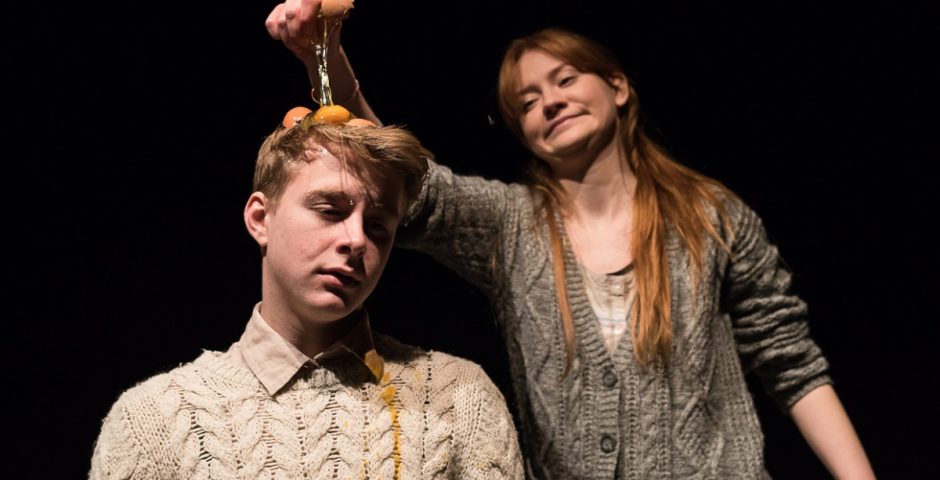
REVIEW: The Cripple of Inishmaan
Irish charms at the ADC
The Cripple of Inishmaan is the story of a close-knit community of an isle off the coast of Ireland, their lives and of the young orphan, Billy, known on the island as “Cripple Billy”, as he seeks to come to terms with his disability and the mysterious death of his parents.
One of the most enjoyable parts of the performance was its authenticity, both in its portrayal of Irishness and in the crafting of the characters. The two “aunties” (Ellie Cole and Kim Alexander) of Billy were especially convincing as young women playing old Irish gossips. They pulled off the accent perfectly, which was difficult enough, but the real charm came from the minor details in their facial expressions and general demeanours, displaying some skilled acting talents and likely some vigorous studying of Father Ted.

[Credit: Johannes Hjorth]
This could be potentially tedious were it told by people of a more familiar culture but when placed in an Irish context, and done as well as it was, it proved more quaint than trying.

[Credit: Johannes Hjorth]
More emphasis might have been placed on these core points in the play and perhaps what was also needed was some finer tunings of improvisation to have these points expressed in a more compelling manner. The charms of Ireland could not glaze over these matters of plot.

[Credit: Johannes Hjorth]
A tendency to violence expressed toward the end in the otherwise kind-hearted character of Babbybobby (Ed Limb) might have been alluded to in an earlier scene where he attacked the character of Johnny (Henry Phillips) however, to the audience, these two outbursts of violence would have seemed entirely separate considering their contexts.
Overall, it was an enjoyable performance and the acting and set really did seem to bring to life something of 1930s Ireland.
3/5









































